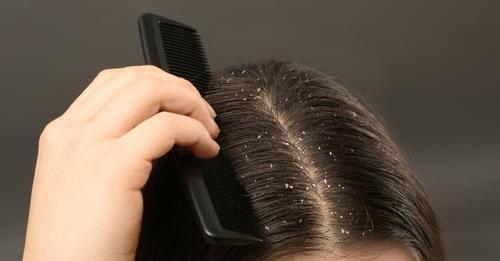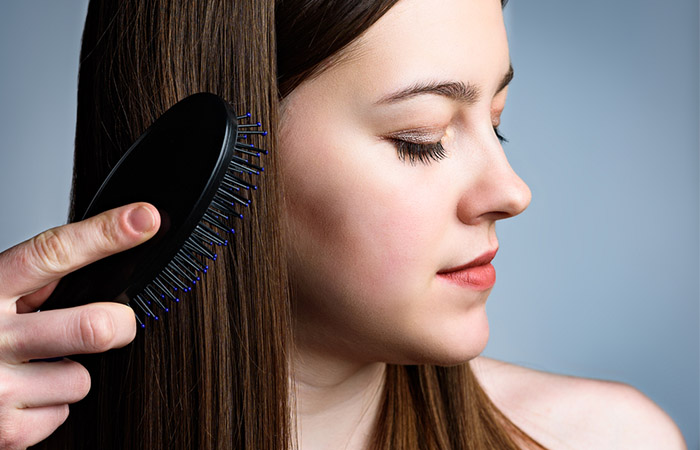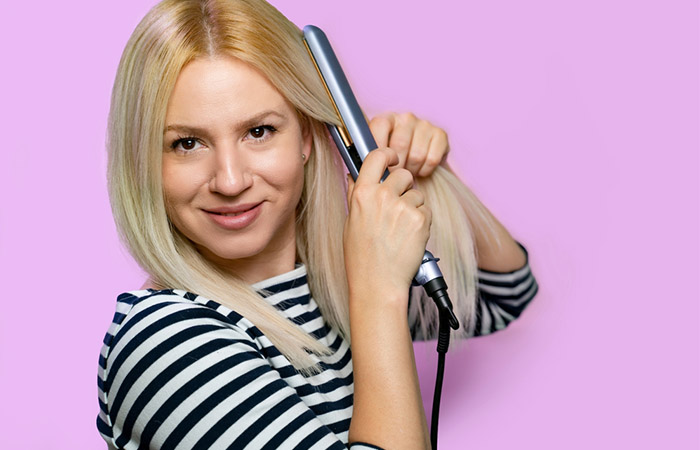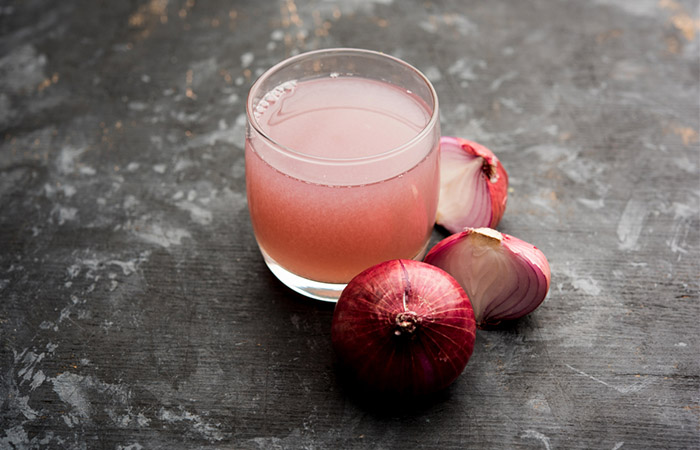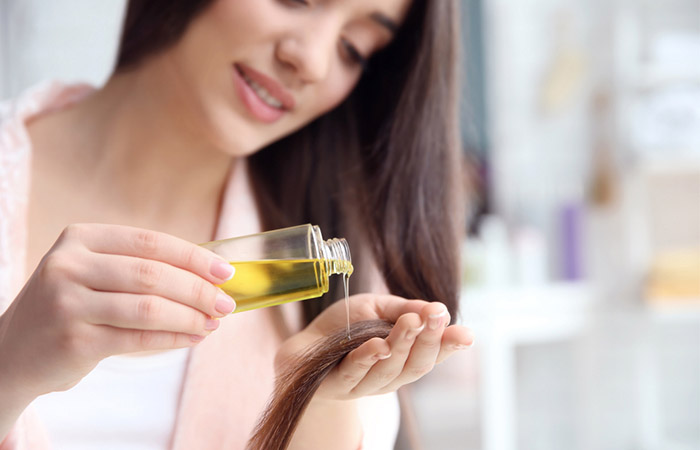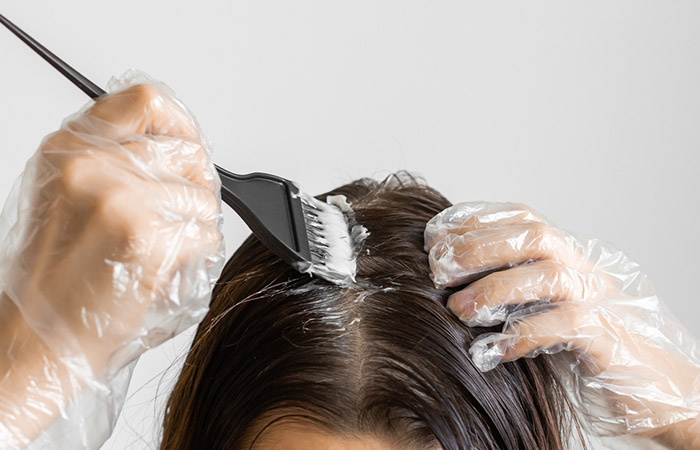No one ever said they liked or wanted dandruff, but it almost feels like a compulsory packaged deal that comes with winter. An itchy, flaky scalp is the typical result of a dry scalp that causes dandruff. This is primarily due to the confluence of two factors: an overabundance of the Malassezia fungus and dry, chilly air (1). Unfortunately, the only way to effectively remove and prevent dandruff is to use specialized hair care products. Neem is one of the most well-known natural products famous for its antifungal properties. In addition, it aids in the elimination of toxins that may be the root cause of the flakiness. Here are some foolproof ways to get rid of dandruff from your roots and enjoy beautiful hair all year round.
1. Brush Your Hair Properly
Hair massage improves blood flow to the scalp, stimulating the glands that produce oils vital to the scalp and hair’s health. Make sure you brush your hair thoroughly with a wide-toothed comb twice daily.
2. Stay Hydrated
Keeping yourself hydrated is a must to give a tough fight to dandruff. Failing to do so can lead to dry skin and hair and increased dandruff. You must drink at least 4-5 liters of water daily. You can also include fruits and soupy meals to your diet.
3. Stay Away From Heating Tools
A flaky scalp is a typical result of the overuse of styling tools. In addition, wet hair can lead to common colds and headaches. Therefore, people use hair dryers more frequently in the winter. However, ironing rods and blow dryers can cause scalp dryness by direct contact with heat. Just pat your hair dry with a towel and skip the blow dryer.
4. Use A Clean Towel Always
Towels made of pure cotton are ideal for drying your hair. However, not maintaining cleanliness and using the same towel for the whole family can transfer hair and scalp problems from one person to another. Therefore, ensure you use a clean and dry towel for every hair wash.
5. Modify Your Eating Habits
If you want to get treatment for dandruff, changing your diet may help. Hair and scalp thrive on vitamin B, zinc, or omega-3 fatty acids (2). So eat more raw vegetables and fruit. Foods like eggs, seafood, bananas, and spinach contain these vitamins and minerals necessary for scalp health.
6. Reduce Your Sugar Intake
You must be familiar with the fact that sugar is terrible for your skin. Your hair suffers the same fate. High blood sugar encourages the production of greasy flakes (3). Cut back on refined sugar and try honey or jaggery instead.
7. Apply Onion Juice
Due to their antifungal compound allicin, onions and garlic are often used to treat fungal infections. In addition, applying onion or garlic juice to the scalp is a tried and true home remedy for dandruff.
8. Oil Your Hair
Always massage oil to your hair about 3 hours before washing it. When it comes to hydrating the scalp and hair, coconut oil is unparalleled. Coconut oil can also serve as a basis for a blend of other oils, such as neem oil, jojoba, and castor oil. Warm the oil up and rub it into your hair and scalp. Using a gentle shampoo should be sufficient to remove it. A few teaspoons of lavender oil, a standard dandruff treatment, can also be used.
9. Reduce Stress
Dandruff might not disappear without stress, but it can irritate more when the individual is under tremendous pressure. Reducing stress levels with the help of physical activity (like yoga), deep breathing exercises, a good night’s sleep, and a nutritious diet can help you control your dandruff to a level.
10. Don’t Dye Your Hair
Chemical hair care items, including hair dye, strong shampoos, or styling products, all contribute to an irritable scalp. Your scalp will get very dry if you use them during the winter. If your scalp is naturally dry and prone to dandruff, you must refrain from dying your hair, especially during winter. Even if you must, ensure you attend to your hair and nourish it from within so it does not dry out and invite dandruff on your scalp.
Dandruff can be a source of embarrassment and annoyance, making your scalp itch and causing hair fall. Acting swiftly to get rid of the problem at its roots is essential. So what’s your secret to fighting dandruff? Let us know in the comments section!
